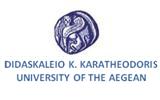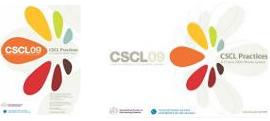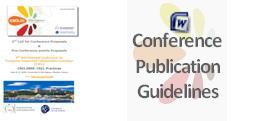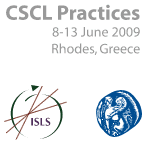
Program
Pre-Conference Events Program
Seminar:
Constructing Graphical and Hypertextual Knowledge Representations for Learning
Jane Alexen Shuyska, Department of Education, University of Oxford, 15 Norham Gardens, Oxford, OX2 6PY, jane.shuyska@education.ox.ac.uk
Seminar content
This seminar will investigate ThinkSpace, a technology-based tool for collaborative learning and reflection. ThinkSpace is a simple idea combining computer-based concept mapping and a wiki in a tool that can be used for structuring and clarifying thoughts about complex material. The tool is used by groups of learners for creating an interlinked online knowledge repository – a mini encyclopaedia - in a wiki and constructing a corresponding graphical representation in the form of a concept map. Being hyperlinked to the wiki, the concept map provides both a navigational aid and overview of the wiki content, as well as being a tool for representing meaning. The wiki repository, as well as its graphical counterpart, are dynamic means for analysing, manipulating and interlinking content knowledge. The seminar will explore the potential of the process of creating multi-layered knowledge representations with ThinkSpace for encouraging active thinking about complex ideas.
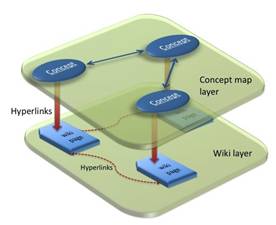
Figure 1. Double layered knowledge representation with ThinkSpace
Seminar format
- Introduction to ThinkSpace – presentation by the organizer
- Conceptual structure and learning theory underpinning the tool (introduction to concept mapping and wikis)
- Technological implementation
- Brief technological hands-on training
- Short concept mapping task to familiarise the participants with Gliffy
- Short wiki writing task in the Sandbox on Twiki to familiarise participants with Twiki’s functionality
- Main reflective small group task: participants will receive an overview starter-pack of information and links to online sources on a topic, which does not require any specific expertise, such as a historical period or a current affairs issue. The task will consist of mapping the main conceptual structure of the topic around a central question and creating an underlying interlinked information base. Through this task the participants will experience the ways in which the tool affords and constrains particular types of thinking and discussion, which will give them an insight into how ThinkSpace can be used to encourage certain types of learning.
- If more than one group are involved in the seminar, the groups will be allowed time to compile short reflective presentations about their experience of working with ThinkSpace and their thoughts about how the tool can facilitate learning.
- The seminar will end with a conclusive discussion about possible ways to explore the ThinkSpace tool and similar technologies in different learning settings.
Seminar Date: Monday morning, June 8th, 2009
.
.
.
.
.
.
.
.
.
.

